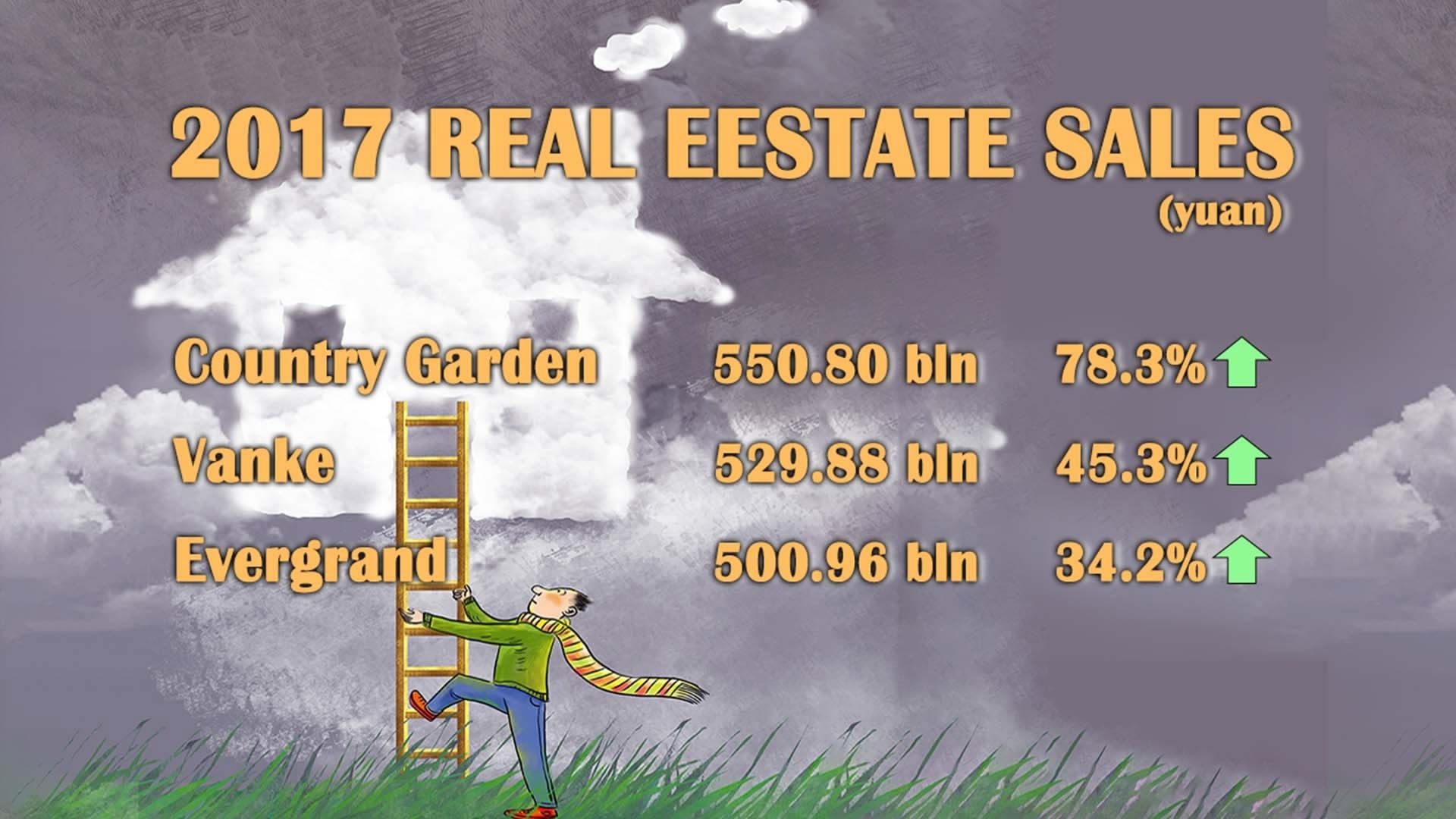
Business
21:28, 08-Jan-2018
Real-estate developers seek opportunities in smaller cities
By CGTN's Chen Tong

China's property market might be cooling, but revenue is still rolling in for the country's real estate developers. The latest data shows 144 of them made more than 10 billion yuan (about 1.5 billion US dollars) worth of sales last year, as they seek fresh opportunities outside of China's biggest cities.
Country Garden, Evergrande and Vanke were among the top gainers in 2017, whose sales revenue all hit 500 billion yuan (about 77 billion US dollars), an average increase of 53 percent year-on-year.
At the same time, 13 developers had sales revenue ranging from 100 billion to 500 billion yuan (15 billion to 77 billion US dollars). It is outstanding performance considering the efforts made to cool down China's property market.

Experts say that while companies see opportunities narrowing in first- and second-tier cities, the market of smaller cities is getting larger as the demand there grows.
“What has happened is in first and second tier cities, there has been a real lack of supply of good projects because of the housing controls. So the demand has spilled over from the first and second tier cities to third and fourth tier cities,” said Luke Moffat, managing director of CBRE Eastern China.
The Chinese government began to boost urban redevelopment in small cities in 2015, which has attracted investment from many companies.
Last year, third and fourth tier cities saw a yearly increase of 145 percent in land purchase area, as China's top 50 developers dramatically stepped up their buying. That has created a headache for smaller developers, many of whom are forced into mergers and acquisition (M&A).

VCG Photo
VCG Photo
Data from Mingyuan Property Research showed that the size of the M&A cases during the first three quarters in 2017 reached 590 billion yuan (91 billion US dollars), and the predicted total size in the whole year is set to exceed 600 billion yuan (92 billion US dollars).
Experts predicted that the rise in M&A deals will continue in 2018, and the trend will make big property players more powerful.
“Big developers will continue to buy out small ones in order to acquire good land in those tier one and tier two cities,” said Joe Zhou, research director of JLL, a global real estate service firm in China.

SITEMAP
Copyright © 2018 CGTN. Beijing ICP prepared NO.16065310-3
Copyright © 2018 CGTN. Beijing ICP prepared NO.16065310-3